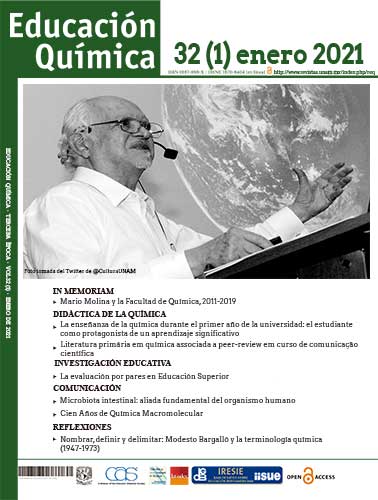Microbiota intestinal: aliada fundamental del organismo humano. Gut microbiota: our fundamental allied
Main Article Content
Abstract
Resumen
La microbiota intestinal desempeña relevantes funciones mediante las cuales contribuye directa o indirectamente a la estabilidad del organismo humano; actualmente su papel es incuestionable en la modulación del sistema inmune, la regulación del sistema nervioso, la síntesis de vitaminas, la defensa del intestino y el movimiento peristáltico.
Las nuevas herramientas de la biología molecular han sido determinantes para la revelación de los sorprendentes hallazgos publicados en los últimos lustros, los cuales han dado origen a términos y frases tales como “psicobióticos”, “un órgano adicional del humano”, “el segundo cerebro” y “el eje microbiota-intestino-cerebro”.
Por otra parte, el desequilibrio de la microbiota intestinal se traduce en la generación o agravamiento de diversas enfermedades crónicas, entre las que destacan la obesidad, diabetes tipo 2, enfermedad inflamatoria del intestino, síndrome metabólico, depresión, ansiedad.
De aquí que la comunidad científica se encuentre trabajando intensamente en el conocimiento de su composición y en el impacto de la proporción o ausencia de las principales especies en el funcionamiento global de la microbiota intestinal y, consecuentemente, del organismo humano.
La presente revisión contribuye a la actualización del tema “Microbiota Habitual” que se imparte en las carreras de Química Farmacéutico Biólogo, Química de Alimentos y carreras afines.
Abstract
The gut microbiota plays relevant functions in the human organism, contributing directly or indirectly to its homeostasis. To name a few, it participates in the immune and the nervous system modulation, the vitamins synthesis, the gut defence and the peristaltic movement.
Novel molecular biology techniques have been determinant to reveal amazing findings in recent years, and now the authors use terms and phrases such as “psychobiotics”, “an additional human tissue”, “the second brain”, and “the microbiota-gut-brain axis”, when referring to the gut microbiota functions.
In contrast, misregulation of gut microbiota is involved in the pathogenicity of chronical diseases, such as obesity, type II diabetes, metabolic syndrome, gut inflammatory disease, depression and anxiety, among others. Therefore, it is important to investigate the gut microbiota composition and the individual contribution of each specie to the gut microbiota function, and subsequently, to the human organism physiology.
This review article summarizes recent contributions in the field, suitable when teaching the theme of “Habitual Microbiota” in the Biological Pharmaceutical Chemistry, Food Chemistry, and related bachelor degrees.
Article Details
Citas en Dimensions Service

Educación Química por Universidad Nacional Autónoma de México se distribuye bajo una Licencia Creative Commons Atribución-NoComercial-SinDerivar 4.0 Internacional.
Basada en una obra en http://www.revistas.unam.mx/index.php/req.




